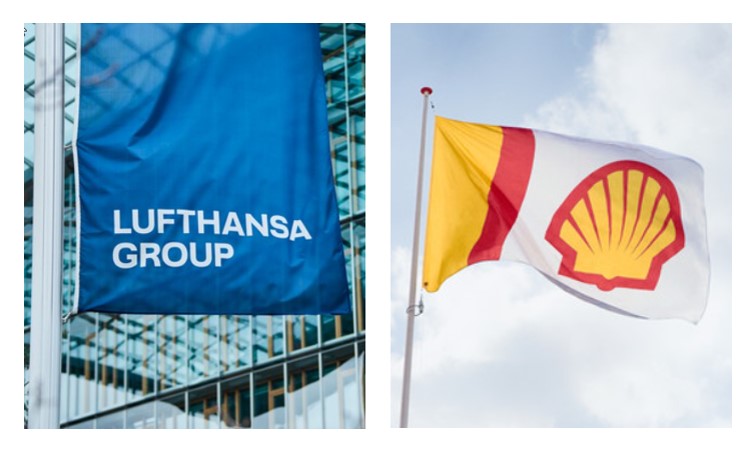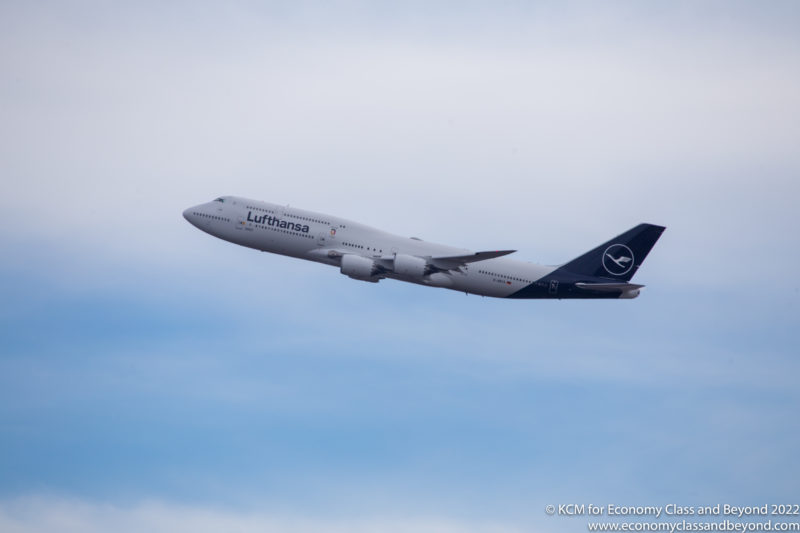As the aviation industry continues to face the 2050 “Net Zero” targets, interest in Sustsanaible Air Fuel continues to be of great interest as they seek to decarbonise.
Shell International Petroleum Co Ltd and the Lufthansa Group have signed a Memorandum of Understanding (MoU) for exploring the supply of SAF at airports across the globe.

Up for grabs is a contract for a total supply volume of up to 1.8 million metric tons of SAF starting in 2024, over a term of seven years.

The cooperation would enable the Lufthansa Group to promote the availability, market ramp-up and use of SAF as an essential element for a CO2-neutral future of aviation.
The MoU builds on Shell’s ambition to have at least ten per cent of its global aviation fuel sales as SAF by 2030.
What does Lufthansa define as Sustainable Air Fuel (or SAF)?
Ludthansa defines SAF as:
SAF is aviation fuel that is produced without the use of fossil energy sources, such as crude oil or natural gas, and show a saving of CO2 compared to conventional kerosene. Various production processes exist and different feedstock are available as energy sources. The current generation of SAF, which saves 80 percent CO2 compared to conventional kerosene, is mainly produced from biogenic residues, for example from used cooking oils. In the long term, SAF can enable virtually CO2-neutral aviation.
The Lufthansa Group has been involved in SAF research for many years and has built up a network of partnerships to drive forward future developments in sustainable next-generation aviation fuel with the focus being placed on the forward-looking power-to-liquid and sun-to-liquid technologies, which use renewable energies or solar thermal energy as energy carriers.
Bigger drops in the Kerosene Ocean
As the industry pushes towards SAF being the halo product that will help them meet their carbon emission goals, supply will continue to be a big issue, as certification of both fuels, engines and systems continues.
With 1.8 million metric tonnes on the cards – it sounds a lot – and it is. However, as Seth pointed out, it is still a drop in the ocean:
LH Group consumed 3.8 million tonnes of fuel in 2021. That number will increase as service levels return, offset slightly by more efficient aircraft. This deal could represent ~6-8% of the total consumption in the period. https://t.co/qLWO0fOMqi
— Seth Miller (@WandrMe) August 1, 2022
The race is on developing further Sustainable Aviation Fuels – one that the industry needs both to promote and develop, as well as its partners.
The rewards – both ecological and economical – are there to be claimed.
Welcome to Economy Class and Beyond – Your no-nonsense guide to network news, honest reviews, featuring in-depth coverage, unique research, as well as the humour and madness I only know how to deliver.
Follow me on Twitter at @EconomyBeyond for the latest updates! You can follow me on Instagram too!
Also remember that we are part of the BoardingArea community, bringing you the latest frequent flyer news from around the world